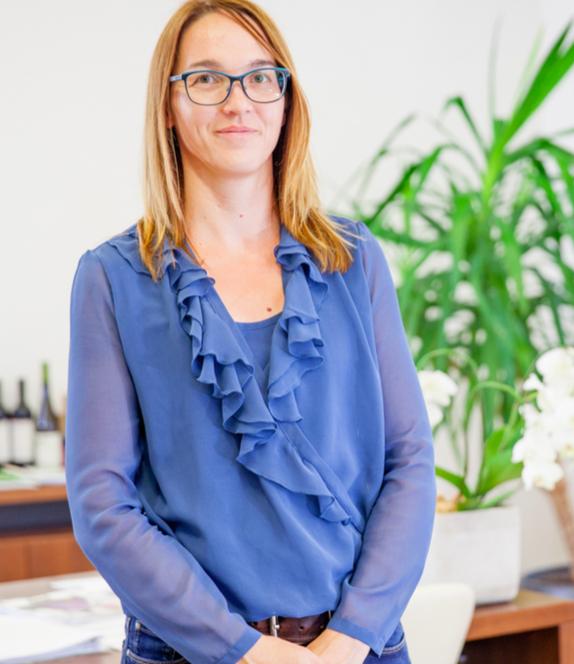
3 minute read
Uncorking wine & cider typicality
A new project entitled "Uncorking rural heritage: indigenous production of fermented beverages for local and environmental sustainability" is a 3-year project with a total cost of about 1.5 million euros (1,500,998.00 EUR), and the EEA and Norway Grants Fund have supported us with 1,359,656.00 EUR. In the project we are nine partners from four different countries, and the University Nova Gorica is leading this consortium. The consortium consists of four research and higher education institutions, the University Nova Gorica with the Wine Research Center and the Faculty for Viticulture and Enology (Slovenia), Nofima As (Norway), NIBIO (Norway) and the Polytechnic in Požega (Croatia). The two partners Tikveš Winery (North Macedonia) and Hardanger Cider Association (Norway) represent the producers, while the Municipality of Ajdovščina (Slovenia), Hardanger Council (Norway) and Local Development Agency Požega (Croatia) represent the local authorities.
The project addresses the problems of rural depopulation, brain drain and underdeveloped local economies faced by rural regions in Central and Eastern Europe. Norway is one of the most developed countries in Europe; however, its rural areas face a similar out-migration problem as the districts of the partners. On the other hand, in Western Europe high quality agricultural products (such as wine) with a strong regional identity have contributed to sustainable rural development, preserving traditions and preventing out-migration or company relocations. This regionality was based on the concept of typicality and terroir. Therefore, the project aims to address these issues by building a new cluster of human capital through transnational cooperation and capacity building with a network of research institutions, universities, enterprises and local authorities operating in selected rural areas for the valorisation of local wines and ciders based on typicality and terroir characterisation.
The concept of typicality has been used for decades around the world to valorise agricultural products and enhance the international reputation and tourism appeal of many rural areas. It is closely related to the French concept of "terroir", which is now widely used in the wine and gastronomy sector. The terroir concept can be described as an interaction of environmental factors (climate, soil) and human factors (practices) that influence the typicality and quality of a wine from a particular geographical area. Wine professionals and consumers generally unconsciously try to categorize the wine and determine its similarity to the reference for its category. In other words, typicality estimates the degree to which a wine reflects geographic origin or varietal purity from a sensory perspective. The link between a geographical origin and some distinctive sensory characteristics is an essential part of the terroir concept. Indeed, sensory typicality associated with a place brings added value to the wine or other agricultural product due to its unique character that cannot be reproduced anywhere else. According to Willi Klinger1, terroir promotes social, economic and environmental sustainability more than just marketing brands and production recipes. It also creates a regional identity that offers a long list of benefits, from a fair income for farmers to the promotion of local tourism and cultural identity. Regional identities are not only a heritage but a cultural achievement and become a collective good.
Terroir as a promotional tool, especially in international markets, can enhance the image of a place and the overall perception consumers have of the wines produced in that place. Several consumer studies have shown that a place's reputation is closely linked to presumed wine quality. However, storytelling about terroir should be based on coherent, solid and unbiased scientific facts. Therefore, our project will combine science, knowledge transfer and adoption to develop the concepts of typicality, regionality and terroir for wine and cider production in selected rural areas of Vipava Valley in Slovenia, Slavonia in Croatia, Tikveš in North Macedonia and Hardanger in Norway.
Uncorking rural heritage: indigenous production of fermented beverages for local cultural and environmental sustainability is funded by Iceland, Liechtenstein and Norway

Typicality of agricultural products, particularly fermented beverages, is used around the world to bring value to local products, develop the local economy and preserve local demography. This project aims to foster the development of rural areas by improving common research capacity and knowledge dissemination applied to the “terroir” approach for wine and cider production in selected areas of Slovenia, Croatia, North Macedonia and Norway. Valorisation based on typicality determination of wines and cider produced in rural areas in Balkan and Norway will be achieved through transnational cooperation and knowledge exchange. A common e-training platform and 2 research and development centres, in Balkan and Hardanger, will be set up to concentrate professional knowledge and ensure transfer of knowledge to local producers and communities.
The Cider support centre located at NIBIO Ullensvang will be the first technical platform in the Hardanger region offering the possibility to cider producers to assess the quality of their products according to international standards. The centre will offer sensory assessment and basic chemical analysis of cider.

LinkedIn: https://www.linkedin.com/company/uncorking-wine-cider-typicality/



Instagram: https://www.instagram.com/winecider.typicality/
Facebook: https://www.facebook.com/Uncorking-WINE-CIDER-Typicality-109899397848648





